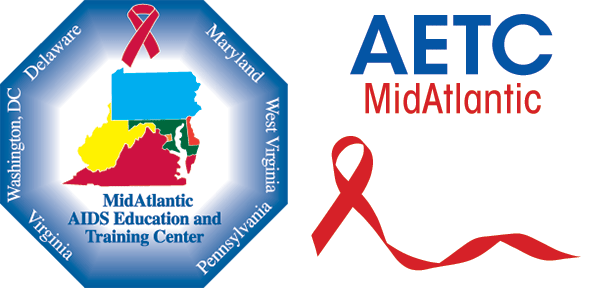This virtual series was created in collaboration with the MidAtlantic AETC Ending the HIV Epidemic (EHE) Workgroup. This comprehensive webinar series aims to provide healthcare professionals with the latest strategies and tools to end the HIV epidemic. Each training session will focus on one of the four key strategies that make up the Ending the HIV Epidemic U.S. Initiative, which include: diagnosing all individuals with HIV as early as possible, treating HIV rapidly and effectively to achieve sustained viral suppression, preventing new HIV transmissions using proven interventions such as PrEP, and responding quickly to potential HIV outbreaks to get needed prevention and treatment services to those who need them.
For more information on this series, visit: https://www.maaetc.org/p/ehemaaetc
This program will address the elements of the key strategy: Diagnosis.
Speakers:
Kate Scott, DNP, CRNP, MPH
Assistant Professor
University of Maryland School of Nursing
Melonie A. Owusu, DNP, CRNP, FNP-BC, AACRN, AAHIVS
Nurse Practitioner, THRIVE Program
Institute of Human Virology
MidAtlantic AIDS Education and Training Center
University of Maryland School of Medicine
Objectives:
Upon completion of this course, participants will be able to:
- Define motivational interviewing (MI) and other strategies for taking a comprehensive sexual health history.
- Describe how to discuss routine HIV testing with patients and clinic staff and how to implement it in clinical and community settings.
- Describe types of HIV testing technology available in clinical and community settings.
- Review best practices for delivering HIV test results and how to counsel patients using a status-neutral approach.
Acknowledgement:
The MidAtlantic AIDS Education and Training Center (MAAETC) is supported by DHHS, Health Resources and Services Administration (HRSA) as part of a cooperative agreement of $2,917,621 and 0% financed with non-governmental sources. Additional funding provided by the Pennsylvania Department of Health (PA DOH), Bureau of Communicable Diseases, Division of HIV Disease. The views expressed do not necessarily reflect the official policies of the Department of Health and Human Services nor does mention of trade names, commercial practices, or organizations imply endorsement by the U.S. Government. Any trade names for products mentioned are for training and identification purposes only. The contents of this material are those of the author(s) and do not necessarily represent the official views of, nor an endorsement, by HRSA, HHS, or the U.S. Government. Funding was made possible in part by TR7HA53201-01-00 from the HRSA, HIV/AIDS Bureau. For more information, please visit HRSA.gov.

